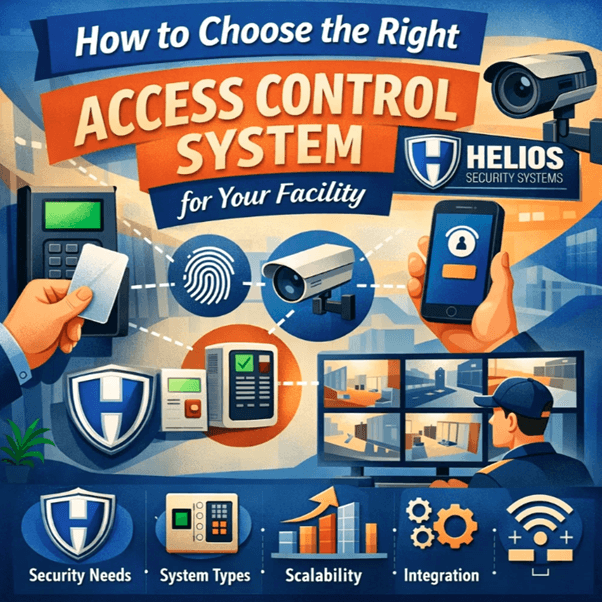For businesses, safety isn’t optional. A commercial fire alarm system is critical for protecting employees, assets, and operations. However, even the best systems fail if installed improperly. Companies that rely on fire alarm system installation without proper planning often face false alarms, gaps in coverage, and compliance issues. Combining these systems with security camera installation in Miami and commercial access control systems ensures a truly secure environment.
Below, we explore common mistakes during installation and how to avoid them.
1. Ignoring a Proper Site Assessment
A frequent error is skipping a detailed site survey before installation. Without analyzing the building layout, systems may miss high-risk areas.
- Overlooking storage rooms, utility closets, or mechanical areas.
- Failing to map evacuation routes and fire load areas.
- Ignoring ceiling height and HVAC airflow can affect smoke detection.
Next step: Engage with experienced access control system installers near me to evaluate vulnerabilities before installing a commercial fire alarm system.
2. Poor Device Placement
Even a well-designed system can fail if detectors, alarms, and panels are poorly positioned.
- Placing smoke detectors too close to air vents can delay detection.
- Installing alarms where sound is blocked or muffled reduces response effectiveness.
- Overlooking emergency exits or stairwells creates blind spots.
Proper placement is technical and requires knowledge of NFPA standards and local fire codes.
3. Using Incompatible Equipment
Mixing older devices with modern components can create integration issues.
- Connecting outdated detectors to new panels may result in missed alerts.
- Wireless systems may conflict with building networks if not properly configured.
- Integration with fire alarm monitoring company services may fail without compatible protocols.
Tip: Always choose systems that can communicate with fire alarm system monitoring platforms for real-time alerts.
4. Neglecting Integration with Other Security Systems
Modern commercial security isn’t just about alarms. Integration with security camera installation in Miami and commercial access control systems adds layers of protection.
- Cameras verify fire alarm triggers for faster situational awareness.
- Access control logs can restrict entry to hazardous zones during emergencies.
- Centralized dashboards provide managers with a real-time view of all systems.
Failing to integrate can slow emergency response and complicate audits.
5. Skipping Regular Testing and Maintenance
A commercial fire alarm system is only effective if it works consistently.
- Ignoring monthly or quarterly testing can allow sensor drift to go unnoticed.
- Battery-operated devices may fail if backups aren’t checked.
- Panels and network connections should be inspected for firmware updates and system errors.
Regular maintenance reduces false alarms, ensures regulatory compliance, and prolongs system life.
6. Underestimating Employee Training
Even the most advanced fire alarm system installation is ineffective if staff don’t know how to respond.
- Employees must know evacuation routes and alarm procedures.
- Security teams should understand monitoring dashboards and alerts.
- Training reduces panic and ensures a smooth response during real events.
Integrating training with access control system installers near me helps coordinate response between fire detection and secure entry points.
7. Overlooking Compliance Requirements
Failure to follow NFPA standards and local fire codes is costly.
- Fines and penalties may result from non-compliance.
- Insurance claims could be denied if systems aren’t up to code.
- Fire inspections may fail, causing business interruptions.
Professional fire alarm system installation ensures systems meet legal standards from day one.
Conclusion
Installing a commercial fire alarm system isn’t just about placing detectors and panels. It requires technical expertise, integration, testing, and ongoing support. Combining security camera installation in Miami, commercial access control systems, and professional fire alarm monitoring ensures businesses are protected from multiple angles.
At Helios Security Systems, our certified teams handle every detail, from system design to maintenance. With advanced solutions and professional guidance, businesses gain peace of mind, operational efficiency, and full compliance.
FAQs
1. What are the most common mistakes in commercial fire alarm system installation?
Mistakes include poor device placement, ignoring site assessments, using incompatible equipment, and skipping regular maintenance.
2. How does integration with security cameras improve fire alarm effectiveness?
Cameras verify alarms in real time, help identify hazards quickly, and provide visual proof during emergencies.
3. Why is employee training important for fire alarm systems?
Proper training ensures staff know evacuation routes, alarm responses, and how to coordinate with security teams.
4. Can outdated fire alarm devices affect safety and compliance?
Yes, older devices may not integrate with modern systems, fail during emergencies, and risk regulatory non-compliance.
5. How often should commercial fire alarm systems be tested and maintained?
Monthly or quarterly testing, battery checks, and firmware updates are recommended to ensure reliability and avoid false alarms.




